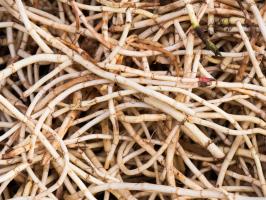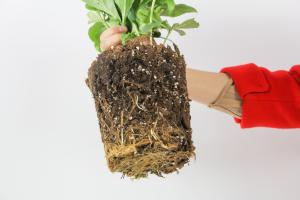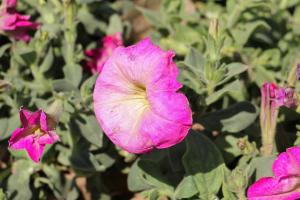Are Ants or Flies Harmful to Pot Plants?
Pot plants, also known as container plants, are plants that grow in a container instead of the ground. They are popular among urban gardeners and those without access to a garden. However, they can also attract pests such as ants and flies. But are these insects harmful to pot plants? Let's find out.
The Role of Ants in Pot Plants
Ants can often be found crawling around the soil of pot plants. While they may not harm the plant directly, their presence can indicate an underlying issue. Ants are attracted to sugary substances, such as the honeydew secreted by aphids. Aphids are tiny insects that feed on the sap of plants, often leaving behind a sticky residue called honeydew. Ants will farm aphids to collect their honeydew, which is a food source for the ants.
If you see ants around your pot plants, it could mean that you have an aphid infestation. Aphids can cause damage to plants by sucking out their nutrients, which can weaken and deform the plant. Additionally, the honeydew produced by aphids can cause fungal growth and attract other pests.
The Effect of Flies on Pot Plants
Similar to ants, flies can also be attracted to sugary substances. They may be drawn to the nectar produced by plants, or they may be attracted to rotting plant matter in the soil. Some flies, such as fungus gnats, can also lay their eggs in the soil of pot plants.
Fungus gnats can be harmful to pot plants in their larval stage. They feed on the roots of the plant, which can cause stunted growth and wilting. Additionally, the presence of fungus gnats can indicate overwatering or poorly draining soil, which can also be detrimental to plant health.
How to Control Ants and Flies in Pot Plants
If you notice ants or flies around your pot plants, there are several steps you can take to control the infestation:
Remove any dead or decaying plant matter from the soil
Allow the soil to dry out in between waterings to discourage fungus gnats
Introduce natural predators, such as ladybugs, to control aphid populations
Use sticky traps to catch adult flies
Apply a natural pest control method such as neem oil or diatomaceous earth
It is important to avoid using chemical pesticides on pot plants, as they can be harmful to both the plant and the environment. Natural pest control methods are a safer and more sustainable option.
Conclusion
While ants and flies may not directly harm pot plants, their presence can indicate an underlying issue that can be detrimental to plant health. By taking steps to control infestations and implementing natural pest control methods, you can ensure that your pot plants remain healthy and vibrant.

 how many times do yo...
how many times do yo... how many planted tre...
how many planted tre... how many pine trees ...
how many pine trees ... how many pecan trees...
how many pecan trees... how many plants comp...
how many plants comp... how many plants can ...
how many plants can ... how many plants and ...
how many plants and ... how many pepper plan...
how many pepper plan...

































